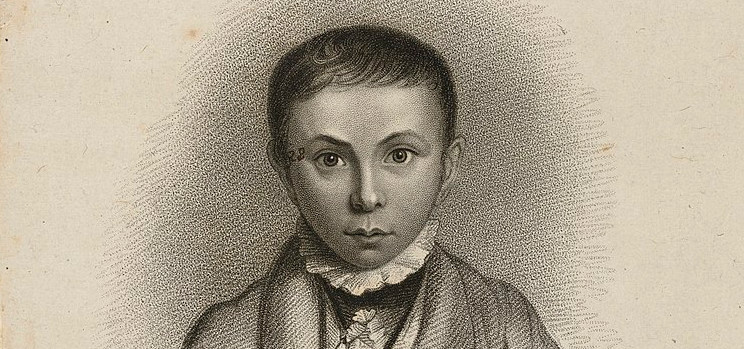321-The Calculating Boy
Futility Closet
Greg Ross
4.8 • 748 Ratings
🗓️ 30 November 2020
⏱️ 33 minutes
🧾️ Download transcript
Summary

George Parker Bidder was born with a surprising gift: He could do complex arithmetic in his head. His feats of calculation would earn for him a university education, a distinguished career in engineering, and fame throughout 19th-century England. In this week's episode of the Futility Closet podcast, we'll describe his remarkable ability and the stunning displays he made with it.
We'll also try to dodge some foul balls and puzzle over a leaky ship.
Intro:
John Clem joined the Union Army at age 10.
Actress Tippi Hedren kept an African lion as a house pet in the 1970s.
Sources for our feature on George Bidder:
E.F. Clark, George Parker Bidder: The Calculating Boy, 1983.
Steven Bradley Smith, The Great Mental Calculators: The Psychology, Methods, and Lives of Calculating Prodigies, Past and Present, 1983.
Frank D. Mitchell, Mathematical Prodigies, 1907.
Henry Budd Howell, A Foundational Study in the Pedagogy of Arithmetic, 1914.
A.W. Skempton and Mike Chrimes, A Biographical Dictionary of Civil Engineers in Great Britain and Ireland: 1500-1830, 2002.
George Eyre Evans, Midland Churches: A History of the Congregations on the Roll of the Midland Christian Union, 1899.
David Singmaster, "George Parker Bidder: The Calculating Boy by E.F. Clark," Mathematical Gazette 71:457 (October 1987), 252-254.
Antony Anderson, "Fairgrounds to Railways With Numbers," New Scientist 100:1385 (Nov. 24, 1983), 581.
Frank D. Mitchell, "Mathematical Prodigies," American Journal of Psychology 18:1 (January 1907), 61-143.
Richard A. Proctor, "Calculating Boys," Belgravia Magazine 38:152 (June 1879), 450-470.
Martin Gardner, "Mathematical Games," Scientific American 216:4 (April 1967), 116-123.
Louis McCreery, "Mathematical Prodigies," Mathematics News Letter 7:7/8 (April-May 1933), 4-12.
"Memoirs of Deceased Members," Minutes of Proceedings of the Institution of Civil Engineers 57 (1878-1879), Part III, 294.
"George Parker Bidder," Devon Notes and Queries, Vol. 2, 1903.
"Calculating Boys," Strand 10 (1895), 277-280.
"Bidder, George Parker," Encyclopædia Britannica, 1911.
H.T. Wood, "Bidder, George Parker," Oxford Dictionary of National Biography, Sept. 23, 2004.
Listener mail:
Todd S. Purdum, "His Best Years Past, Veteran in Debt Sells Oscar He Won," New York Times, Aug. 7, 1992.
"In Financial Straits, Actor Sells '46 Oscar," Chicago Tribune, Aug. 7, 1992.
"Harold Russell Selling 'Best Years of Our Lives' Oscar," Los Angeles Times, July 31, 1992.
Heathcliff Rothman, "I'd Really Like to Thank My Pal at the Auction House," New York Times, Feb. 12, 2006.
Stephen Ceasar, "You Can't Put a Price on Oscar: Even Heirs of Winners Are Bound by Rules Against Selling the Statue," Los Angeles Times, Feb. 25, 2016.
"Orson Welles' Citizen Kane Oscar Auctioned in US," BBC News, Dec. 21, 2011.
Allen St. John, "Does Japanese Baseball Have the Answer for MLB's Dangerous Foul Ball Problem?", Forbes, Sept. 30, 2017.
"Foul Balls in Japanese Baseball," Real Sports With Bryant Gumbel, HBO, April 20, 2016.
"A Look at Some Extended Protective Nettings in the KBO and NPB," Fan Interference, Feb, 2, 2016.
Andrew W. Lehren and Michelle Tak, "Every Major League Baseball Team Will Expand Netting to Protect Fans From Foul Balls," NBC News, Dec. 11, 2019.
Bill Shaikin, "A Lawsuit Could Make Baseball Teams Liable for Foul Balls That Injure Fans," Los Angeles Times, Feb 20, 2020.
This week's lateral thinking puzzle was contributed by listener Jon Jerome.
You can listen using the player above, download this episode directly, or subscribe on Google Podcasts, on Apple Podcasts, or via the RSS feed at https://futilitycloset.libsyn.com/rss.
Please consider becoming a patron of Futility Closet -- you can choose the amount you want to pledge, and we've set up some rewards to help thank you for your support. You can also make a one-time donation on the Support Us page of the Futility Closet website.
Many thanks to Doug Ross for the music in this episode.
If you have any questions or comments you can reach us at [email protected]. Thanks for listening!
Transcript
Click on a timestamp to play from that location
| 0:00.0 | Welcome to the Futility Closet Podcast, forgotten stories from the pages of history. |
| 0:14.4 | Visit us online to sample more than 11,000 quirky curiosities from a 10-year-old soldier to a domestic lion. This is episode 321. |
| 0:23.9 | I'm Greg Ross. And I'm Sharon Ross. George Parker Bitter was born with a surprising gift. |
| 0:29.7 | He could do complex arithmetic in his head. His feats of calculation would earn for him a university |
| 0:35.1 | education, a distinguished career in engineering, and fame |
| 0:38.7 | throughout 19th century England. In today's show, we'll describe his remarkable ability |
| 0:43.5 | and the stunning displays he made with it. We'll also try to dodge some foul balls and puzzle over |
| 0:49.5 | a leaky ship. |
| 1:01.3 | George Parker Bitter found his own way into the world of mathematics. |
| 1:07.3 | Born in 1806 into a family of Devon Stone Masons, he was sent to the village school at age four to learn to read. |
| 1:09.4 | He found he didn't like it and played truant whenever |
| 1:11.8 | he could. He learned numbers almost by chance at age six from his brother, who taught him to |
| 1:17.5 | count first to ten and then to one hundred. That was his only instruction in figures, but it was |
| 1:22.7 | all he would need. Exploring on his own, he discovered it was much quicker to count to ten times than to count |
| 1:29.0 | 100, and that put him on to the notion of multiplication. He wrote later, |
| 1:33.4 | This may appear to you a simple process, but I attached the utmost importance to it because it |
| 1:38.3 | made me perfectly familiar with numbers up to 100. It became, as it were, my friends, |
| 1:43.2 | and I knew all their relations and acquaintances. |
| 1:45.8 | Though he still had no knowledge of written numbers and did not even know the word multiply, |
| 1:50.2 | he taught himself the facts of multiplication by arranging marbles, peas, and other items |
| 1:54.7 | into rectangles of various sizes, and then counting them. By laying out lead pellets in eight |
| 2:00.1 | rows of eight pellets each, he wrote, |
... |
Please login to see the full transcript.
Disclaimer: The podcast and artwork embedded on this page are from Greg Ross, and are the property of its owner and not affiliated with or endorsed by Tapesearch.
Generated transcripts are the property of Greg Ross and are distributed freely under the Fair Use doctrine. Transcripts generated by Tapesearch are not guaranteed to be accurate.
Copyright © Tapesearch 2025.

